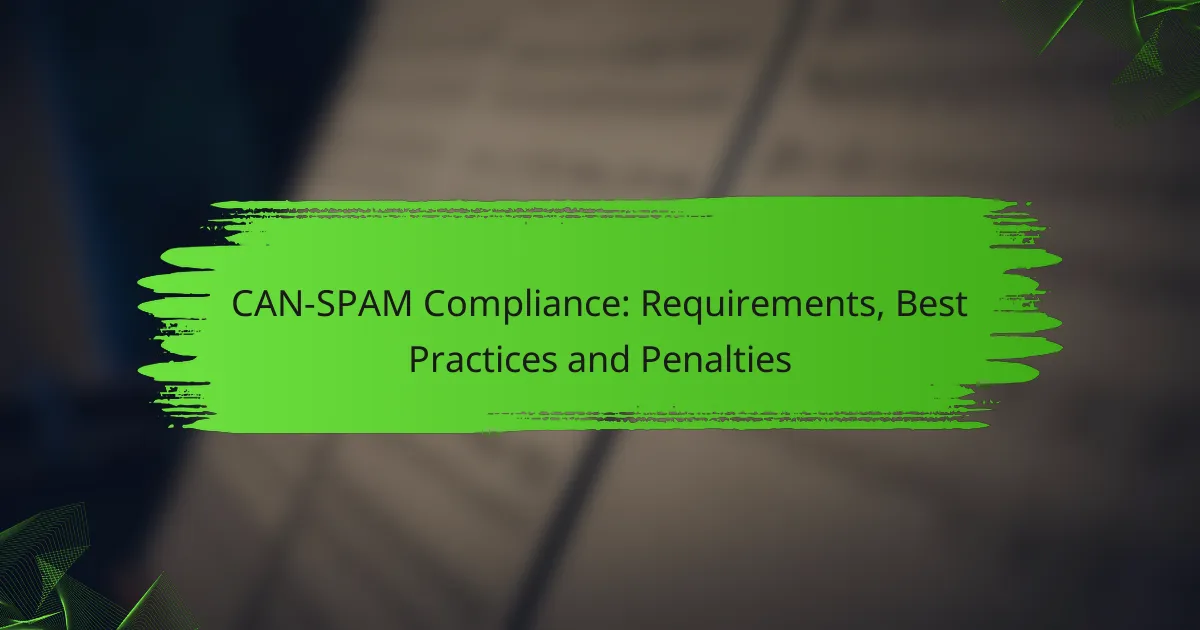Privacy regulations have a profound impact on businesses in the US, mandating strict compliance with data protection and privacy management standards. As organizations adapt to these legal requirements, they often face increased operational costs and must rethink their customer data handling practices. By implementing effective strategies such as robust data protection policies and employee training, businesses can navigate these challenges while safeguarding personal information.

How do privacy regulations impact businesses in the US?
Privacy regulations significantly affect businesses in the US by imposing legal requirements for data protection and privacy management. Companies must adapt their operations to comply with these laws, which can lead to increased costs and changes in how they handle customer data.
Increased compliance costs
Compliance with privacy regulations often results in higher operational costs for businesses. Companies may need to invest in new technologies, hire legal experts, and conduct regular audits to ensure adherence to laws like the California Consumer Privacy Act (CCPA) or the General Data Protection Regulation (GDPR) if they operate internationally.
For many businesses, compliance costs can range from thousands to millions of dollars annually, depending on their size and the complexity of their data operations. Small businesses, in particular, may struggle to allocate sufficient resources to meet these requirements.
Changes in data handling practices
Privacy regulations necessitate significant changes in how businesses handle customer data. Companies must implement stricter data collection, storage, and sharing practices to comply with legal standards, which often includes obtaining explicit consent from customers.
Additionally, organizations may need to establish clear data retention policies and ensure that they can quickly respond to customer requests regarding their personal information. This shift often requires training employees and updating internal processes to align with new legal expectations.
Impact on customer trust
Adhering to privacy regulations can enhance customer trust, as consumers are increasingly concerned about how their data is used. Businesses that demonstrate a commitment to protecting customer information can differentiate themselves from competitors and build stronger relationships with their clients.
However, failure to comply with privacy laws can lead to reputational damage and loss of customer confidence. Companies must communicate transparently about their data practices and ensure that they are taking appropriate steps to safeguard personal information.

What strategies can businesses adopt to comply with privacy regulations?
Businesses can adopt several strategies to comply with privacy regulations, including implementing robust data protection policies, training employees on compliance, and utilizing privacy management software. These strategies help organizations safeguard personal data while ensuring adherence to legal requirements.
Implementing data protection policies
Establishing clear data protection policies is essential for compliance with privacy regulations. These policies should outline how personal data is collected, used, stored, and shared, ensuring transparency and accountability. Regularly reviewing and updating these policies can help address emerging risks and changes in regulations.
Key components of effective data protection policies include data minimization, purpose limitation, and secure data handling practices. For example, businesses should only collect data necessary for specific purposes and ensure that sensitive information is encrypted during storage and transmission.
Training employees on compliance
Training employees on compliance with privacy regulations is crucial for fostering a culture of data protection within the organization. Regular training sessions should cover the importance of data privacy, the specifics of relevant regulations, and the organization’s policies and procedures. This helps employees understand their roles in protecting personal data.
Consider implementing a mix of training formats, such as workshops, e-learning modules, and quizzes to reinforce knowledge. Additionally, providing real-life scenarios and examples can help employees recognize potential privacy risks and respond appropriately.
Utilizing privacy management software
Privacy management software can streamline compliance efforts by automating data protection processes and tracking regulatory changes. These tools often include features for data mapping, risk assessments, and incident response, making it easier for businesses to manage their privacy obligations effectively.
When selecting privacy management software, consider factors such as scalability, integration capabilities, and user-friendliness. Many solutions offer customizable dashboards and reporting features that can help organizations monitor compliance status and identify areas for improvement.

What are the key privacy regulations affecting businesses?
Key privacy regulations impacting businesses include the General Data Protection Regulation (GDPR), California Consumer Privacy Act (CCPA), and Health Insurance Portability and Accountability Act (HIPAA). These laws establish guidelines for data collection, usage, and protection, ensuring that consumer privacy is prioritized across various sectors.
General Data Protection Regulation (GDPR)
The GDPR is a comprehensive data protection law in the European Union that governs how businesses handle personal data. It requires organizations to obtain explicit consent from individuals before collecting their data and mandates transparency regarding data usage.
Businesses must implement strict data protection measures and provide individuals with rights such as data access, correction, and deletion. Non-compliance can result in hefty fines, often reaching up to 4% of annual global turnover or €20 million, whichever is higher.
California Consumer Privacy Act (CCPA)
The CCPA is a state law that enhances privacy rights for California residents. It gives consumers the right to know what personal data is being collected, the purpose of its collection, and the ability to opt-out of the sale of their data.
Businesses must disclose their data collection practices and provide consumers with the option to delete their information. Failing to comply can lead to penalties of up to $7,500 per violation, emphasizing the need for robust compliance strategies.
Health Insurance Portability and Accountability Act (HIPAA)
HIPAA is a U.S. regulation that protects sensitive patient health information from being disclosed without consent. It applies to healthcare providers, insurers, and any business associates handling health data.
Organizations must implement physical, administrative, and technical safeguards to ensure the confidentiality and integrity of health information. Violations can result in significant fines, ranging from thousands to millions of dollars, depending on the severity of the breach.

How can companies adapt to evolving privacy regulations?
Companies can adapt to evolving privacy regulations by implementing robust compliance strategies, staying informed about legal changes, and engaging with experts. This proactive approach ensures that organizations remain compliant while effectively managing customer data.
Regularly updating compliance frameworks
Regularly updating compliance frameworks is essential for companies to align with changing privacy regulations. This involves reviewing and revising policies, procedures, and technologies to ensure they meet current legal standards.
For instance, businesses should conduct annual audits of their data protection practices and incorporate any new requirements from regulations like GDPR or CCPA. Establishing a checklist for compliance can help streamline this process.
Engaging with legal experts
Engaging with legal experts is crucial for navigating the complexities of privacy regulations. Legal professionals can provide insights into specific compliance requirements and help interpret the implications of new laws.
Companies should consider retaining legal counsel specializing in data protection or privacy law. Regular consultations can help identify potential risks and ensure that the organization is prepared for any regulatory changes.
Monitoring regulatory changes
Monitoring regulatory changes is vital for companies to stay ahead of compliance requirements. This involves keeping track of new legislation, amendments, and enforcement actions that may impact data privacy practices.
Organizations can subscribe to legal updates, join industry associations, or utilize compliance software that alerts them to relevant changes. Setting up a dedicated team or individual responsible for regulatory monitoring can enhance responsiveness and adaptability.

What are the challenges of implementing privacy regulations?
Implementing privacy regulations presents several challenges, including resource allocation issues and the complexity of the regulations themselves. Organizations must navigate these hurdles to ensure compliance while maintaining operational efficiency.
Resource allocation issues
One of the primary challenges in implementing privacy regulations is the need for adequate resource allocation. Companies often struggle to dedicate sufficient financial and human resources to compliance efforts, which can lead to gaps in privacy protections.
For example, smaller businesses may find it difficult to hire specialized personnel or invest in necessary technology. A practical approach is to assess current resources and prioritize spending on critical compliance areas, such as data protection training and privacy management tools.
Complexity of regulations
The complexity of privacy regulations can be overwhelming for organizations. Different jurisdictions may have varying requirements, making it challenging to develop a unified compliance strategy. For instance, the General Data Protection Regulation (GDPR) in the EU has strict guidelines that differ significantly from those in the United States.
To navigate this complexity, companies should stay informed about relevant regulations and consider consulting legal experts. Creating a compliance roadmap that outlines key obligations and deadlines can also help simplify the process and ensure that all aspects of the regulations are addressed effectively.



